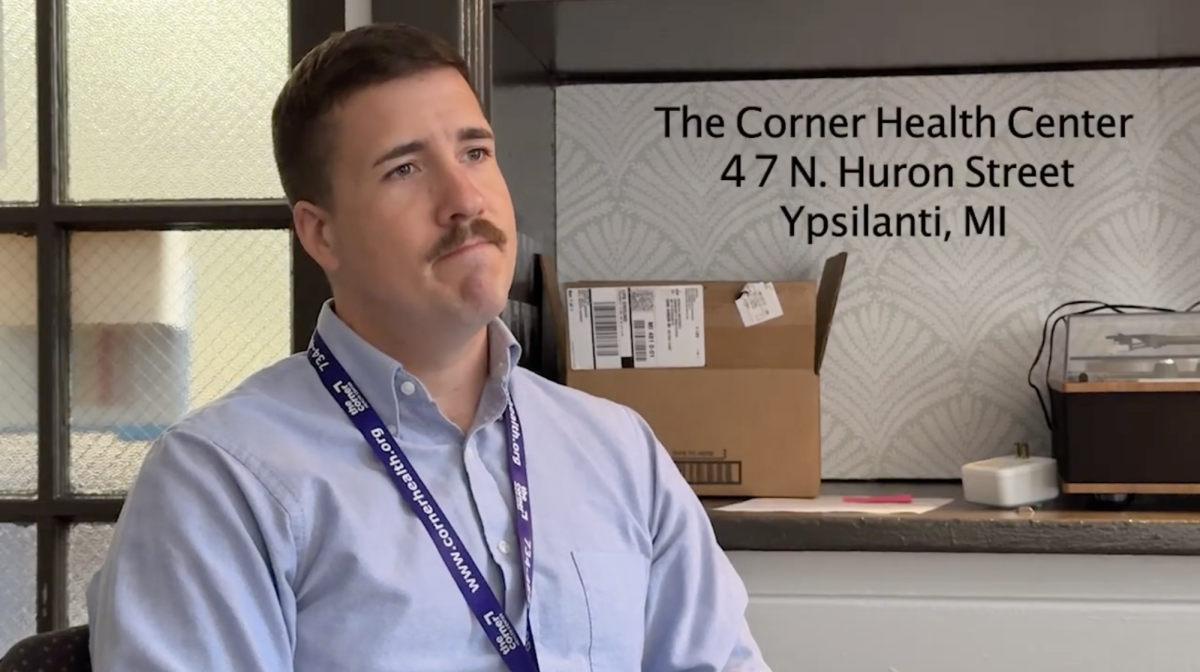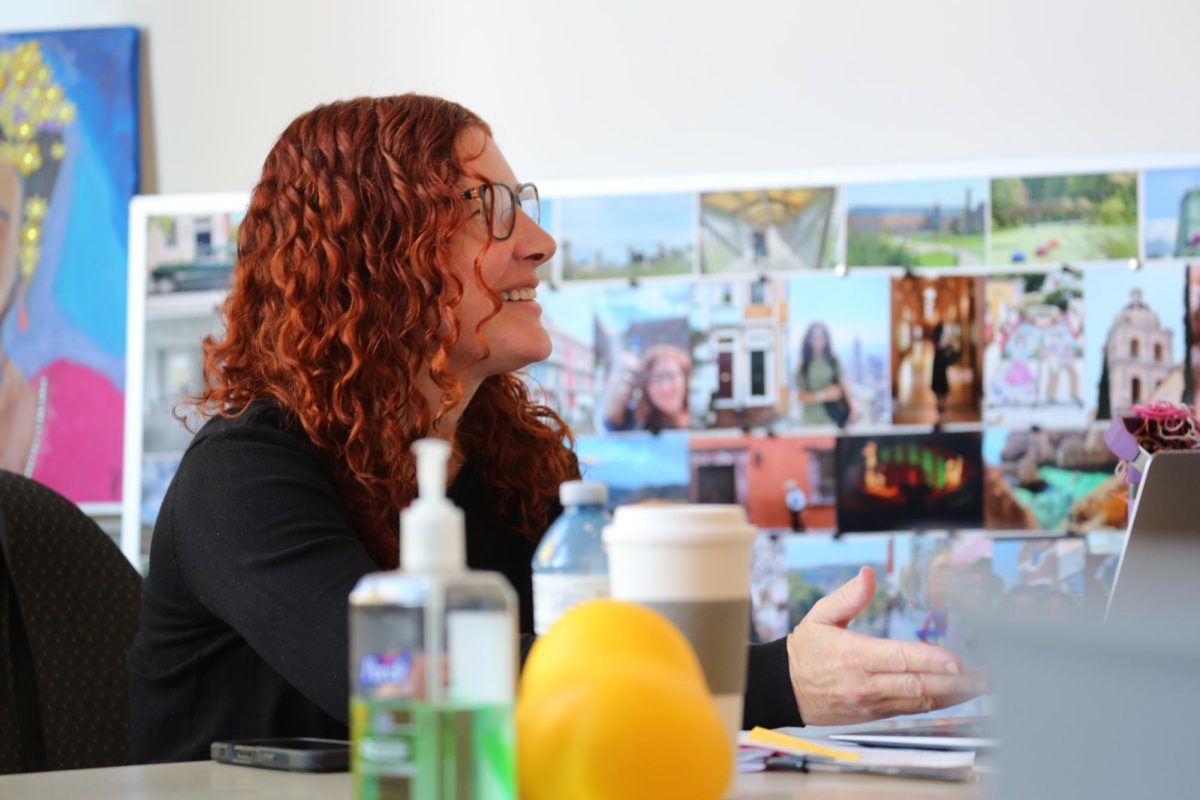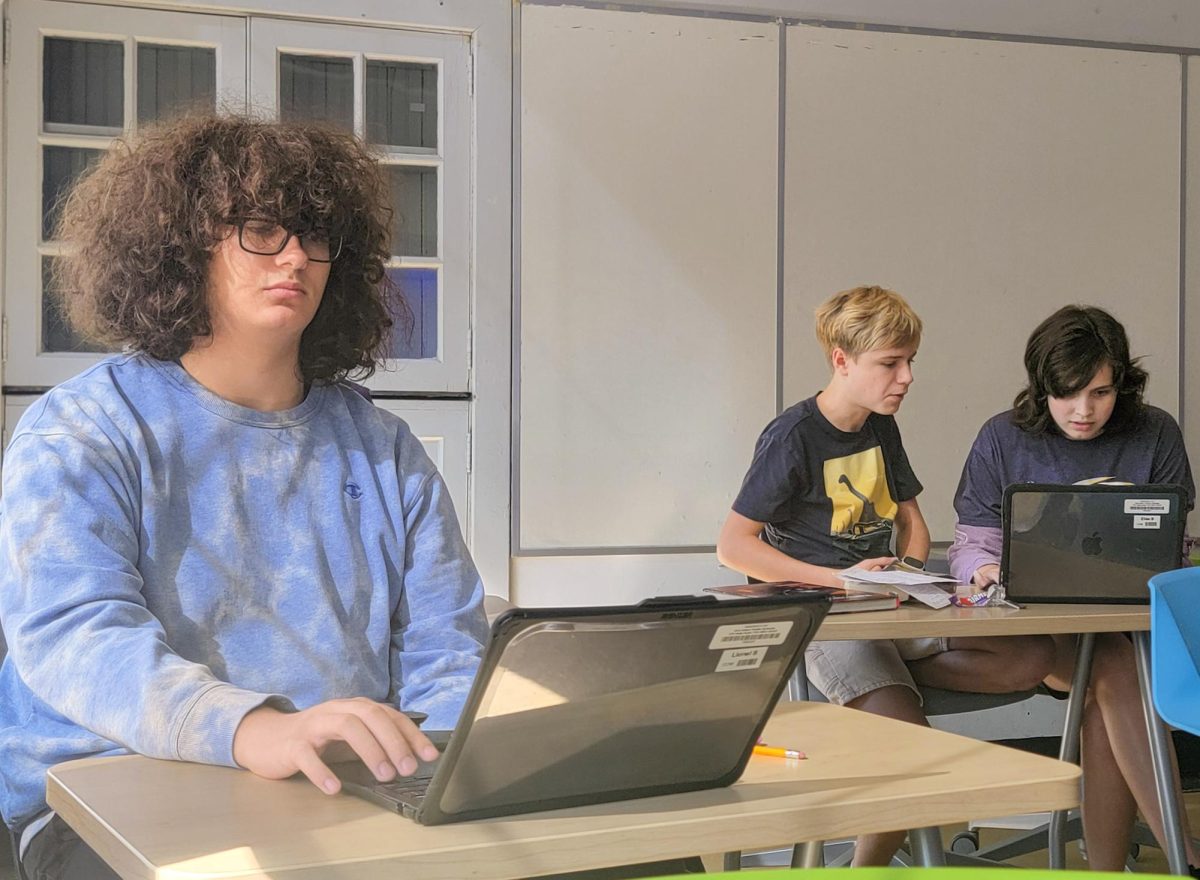Junior year. It is coined as the most demanding and difficult year of high school, marked by heightened academic rigor, preparation for standardized tests and the beginning of the pivotal college search. Thoughts of performing well in school and maintaining a social life constantly run through Meghan Pillote’s mind.
“As a junior, this year is definitely the most difficult it’s ever been for me,” Pillote said. “It’s just so overwhelming, thinking ‘Oh my god, I have to get perfect scores on this giant test, the SAT and this is going to determine my future,’” Pillote said. “And then at the same time, I have all these classes and then I’m juggling it with my social life. It’s such a stressful thing.
Finding the balance is an everyday battle. But another aspect Pillote grapples with is feeling unmotivated, struggling to find the applicability of what she learns from her homework.
“It’s really hard to grasp the importance of school and a lot of the time, I feel like what I’m learning isn’t really valuable to me,” Pillote said. “If I don’t see value in what I’m learning, then I’m not going to want to learn another thing.”
For Pillote, this is where the snowball effect comes into play.
“ I think what has been causing me a struggle in school is the work will pile up or I’ll get a lot and it’ll stress me out, which then overwhelms me and makes me not want to do my work because I’m stressed and overwhelmed and I just do nothing, and I get more and more behind,” Pillote said.
With demanding course loads, time management proves to be crucial in staying motivated and on top of one’s work; Izzy Stevens, senior, entered high school with a future-oriented mindset, recognizing the critical role school plays in shaping her trajectory beyond high school. Stevens’ most difficult courses are Calculus BC and Physics, both with variable course loads, but the block schedule helps Stevens manage the work.
“I don’t think I struggle personally because I make time for it,” Stevens said. “I think the block schedule really helps me not get overwhelmed with the work. But I think if I had sports or something that I had to do multiple times a week, then I might be struggling.”
However, a glimpse into Steven’s study habits reveals a strategy that may seem counterintuitive: watching TV while tackling her homework, typically a show that she’s already seen before. She also makes goals for herself as she works, preventing her work from seeming as overwhelming or tedious.
“I make goals for myself when I’m working, so I’ll be like, ‘Okay, once I get halfway through my work, then I can take a break,’” Stevens said. “I just try and make my work as enjoyable as I can, so I watch TV while I do it for a lot of these math-based courses.”
Similarly, Johana Horvath finds that calculus is her most difficult class this year, acknowledging the fast-pace and complex material the class covers. Despite the difficulty, Horvath recognizes the value of the challenge, especially in preparing for future college courses.
“I plan to major in biology and someday, I hope to become an orthodontist,” Horvath said. “So going along the pre-med, biology route, it definitely requires taking challenging science courses and challenging math courses.”
Horvath observes others struggling with putting in the extra effort and time to excel in calculus, finding that the hardest part of calculus, apart from the material itself, is keeping on track and not falling behind.
“Sometimes, people don’t realize that if you want to be good at something, you have to put in the extra work and put in the extra time,” Horvath said. “I think if people find they’re falling behind or not keeping up it’s because they might not always be putting in extra time or doing all the assignments.”
For Horvath, the struggle lies in remembering to turn in her completed work into Schoology, finding it tedious to take pictures to submit it electronically, especially when it is a lengthy packet.
“It’s much easier to give it to the teacher, but obviously, they would like it to be submitted to Schoology,” Horvath said. “If I noticed that I have a missing assignment, it’s like I did it, but I just never turned it in. So, I think that that’s sometimes where I lack motivation.”
Although Horvath dedicates a lot of time to her homework, math is a subject that doesn’t come as easily to her as english and writing. However, Maneesha Mankad, CHS calculus teacher, challenges the prevalent notion of “not being a math person” and emphasizes that anyone can excel in math with the right mindset and tools.
Mankad transitioned from a career in biostatistics to becoming an educator, motivated by the desire to challenge stereotypes surrounding math, especially when coming from India, where math is held in high regard. Mankad’s decision to pursue a master’s in education was influenced by her observation that math, unlike other subjects, often carries a negative connotation; individuals readily express an inability to grasp mathematical concepts. Drawing on decades of research, Mankad refutes the idea that there is a specific type of person inherently suited for math.
“In India, people who do math well are respected. And it’s something that is considered really good, like, ‘Oh, you’re working hard and you’re doing math and you’re doing well,’ and I found that people felt completely okay for them to say things like, ‘I just can’t do that. I’m not a math person,’” Mankad said. “I always wondered, would you be okay saying, ‘I can’t read, and I’m not a person who reads? Or I’m not a person who does English? We wouldn’t, but somehow it’s okay over here for us to say, ‘Oh, I’m just not a math person.’”
Instead, Mankad advocates for a shift in perspective, urging students to approach math with the same pride and enthusiasm as they would other subjects. For decades, math has been rooted in traditional-lecture based learning, but there are challenges associated with this teaching style.
“One of the most common styles of learning is lectures, which is really hard because I think in all classes, the teacher is teaching you, they need to lecture to you,” Pillote said. “It’s really hard to balance learning through a lecture and learning by working more creatively, which is what I work best with.”
Mankad recognizes these flaws and employs an inquiry-based model. This approach encourages exploration, collaboration and utilization of diverse perspectives. By framing math problems within real-world contexts, students are prompted to engage actively in problem-solving.
Mankad believes that this method fosters a collaborative and innovative learning environment, where students actively participate in discussions and share various problem-solving strategies, differing from its older counterpart.
“The whole way of teaching in mathematics has really changed to the point where some people are like, ‘Why are we having any lecture-based lessons now?’ Because here’s the thing, I completely agree,” Mankad said. “It’s not that it won’t work for people, like there are people for whom lecturing works. And if I give you an algorithm here, step number one, step number two, step number three, step number four, do these four steps and you will be able to solve the problem. But I did all the thinking for you. What was the value in it for you?”
Mankad wants to show students that learning something difficult is worthwhile. She hopes students are able to get to a point where they embrace the productive struggle, a fundamental part of learning, and don’t just strive for a certain grade.
“If you are taking calculus, you are giving a message to the rest of the world. I did something that was really challenging, that was college level,” Mankad said. “People could have all A’s, but if you didn’t take the most challenging classes, those A’s do not have the same value. Because did you push yourself to go and productively struggle and do something that you were uncomfortable doing?”
In the world of education, Mankad’s mission transcends conventional boundaries as she hopes to create an environment where learning is valued, as well as struggling
“I’m trying to improve and grow every single day to help my students understand that what I value is their learning and their willingness to struggle and learn something that’s complex,” Mankad said. “It doesn’t matter how long it takes. There are no prizes for doing that fast. The thing is, you can learn at your own pace and that’s fine.”
To struggle is to learn — and there is joy in that. Mankad sees students and their pride once they gain the confidence to attempt hard things and understand math.
“That is what keeps me in [teaching],” Mankad said. “Just to see the light in everybody’s eyes when they feel like, ‘Yes, I got this and it was so hard and I had to work at it, but I’m here,’ and it makes sense to you. So, that joy is the hope.”










